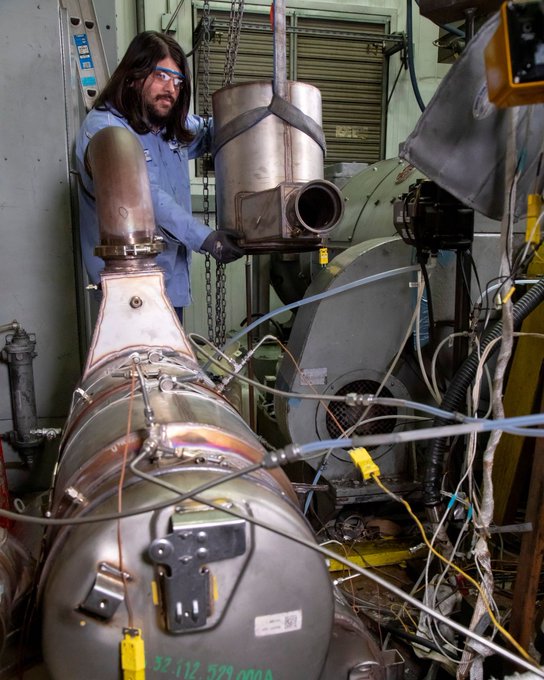
Southwest Research Institute is testing the durability of valves on fuel
tanks for hydrogen-powered vehicles. Hydrogen is increasingly being
considered as an alternative to fossil fuels in the transportation sector.
The work is being completed as part of an effort with the National Highway
Traffic Safety Administration (NHTSA) to evaluate current testing standards
for pressurized hydrogen tank valves.
In recent years, government and industry demands for hydrogen research have
increased as industry searches for alternatives to burning fossil fuels,
which contributes to climate change. SwRI is leading several
multidisciplinary efforts to evaluate hydrogen as a potential fuel source
for automobiles, power generation and even as a replacement for natural gas
in homes.
“The advances in hydrogen-powered vehicles have led to an increased need for
evaluating fuel tank components pressurized with hydrogen gas,” said SwRI
Research Engineer Jacqueline Manders. “It’s necessary for our industry
partners to ensure that these tanks and the associated components are safe
and reliable prior to use on the road.”
Manders led the development of a new test stand at SwRI that will be used to
perform pressure integrity testing on valves and flow components with
hydrogen gas. The test stand is designed to achieve pressure as high as
20,000 psi, with temperature control capabilities ranging from -40 to 240
degrees Fahrenheit.
“We’re certainly expanding our component test capabilities at SwRI using
hydrogen at these pressures and temperatures,” Manders said. “Testing with
hydrogen is more challenging than with inert gases such as nitrogen or
helium. It is imperative to understand the safety hazards associated with
hydrogen to design our test stand and develop testing procedures.”
The purpose of the current test program is to evaluate and provide feedback
on a series of tests for primary closure components on compressed hydrogen
storage systems, as specified in a worldwide standard.
“There is also tremendous potential to use the test stand for future
integrity testing on components for the hydrogen industry, improving
component reliability,” Manders said. “With the increased demand for
hydrogen research, it’s imperative that we evaluate current test procedures
and ensure that these products are being qualified to an acceptable
standard.”
The temperature and pressure extremes are meant to test the hydrogen valves
beyond their expected operating range, conservatively qualifying them for
use in vehicles in different climates all over the world.
The test stand is now in operation, allowing the Institute to test hydrogen
valves for NHTSA as well as other clients.
For more information, visit
https://www.swri.org/flow-comp
About SwRI:
SwRI is an independent, nonprofit, applied research and development
organization based in San Antonio, Texas, with more than 3,000 employees and
an annual research volume of nearly $726 million. Southwest Research
Institute and SwRI are registered marks in the U.S. Patent and Trademark
Office. For more information, please visit www.swri.org.
















More Stories
Industry-standard switching & simulation systems from Pickering Interfaces on show at Space-Comm Expo
Bangkok International Motor Show 2025 – The Talk of Sensuous Automotive
SEPA and Bidgely Release Report on the Power of AI for Transportation Electrification